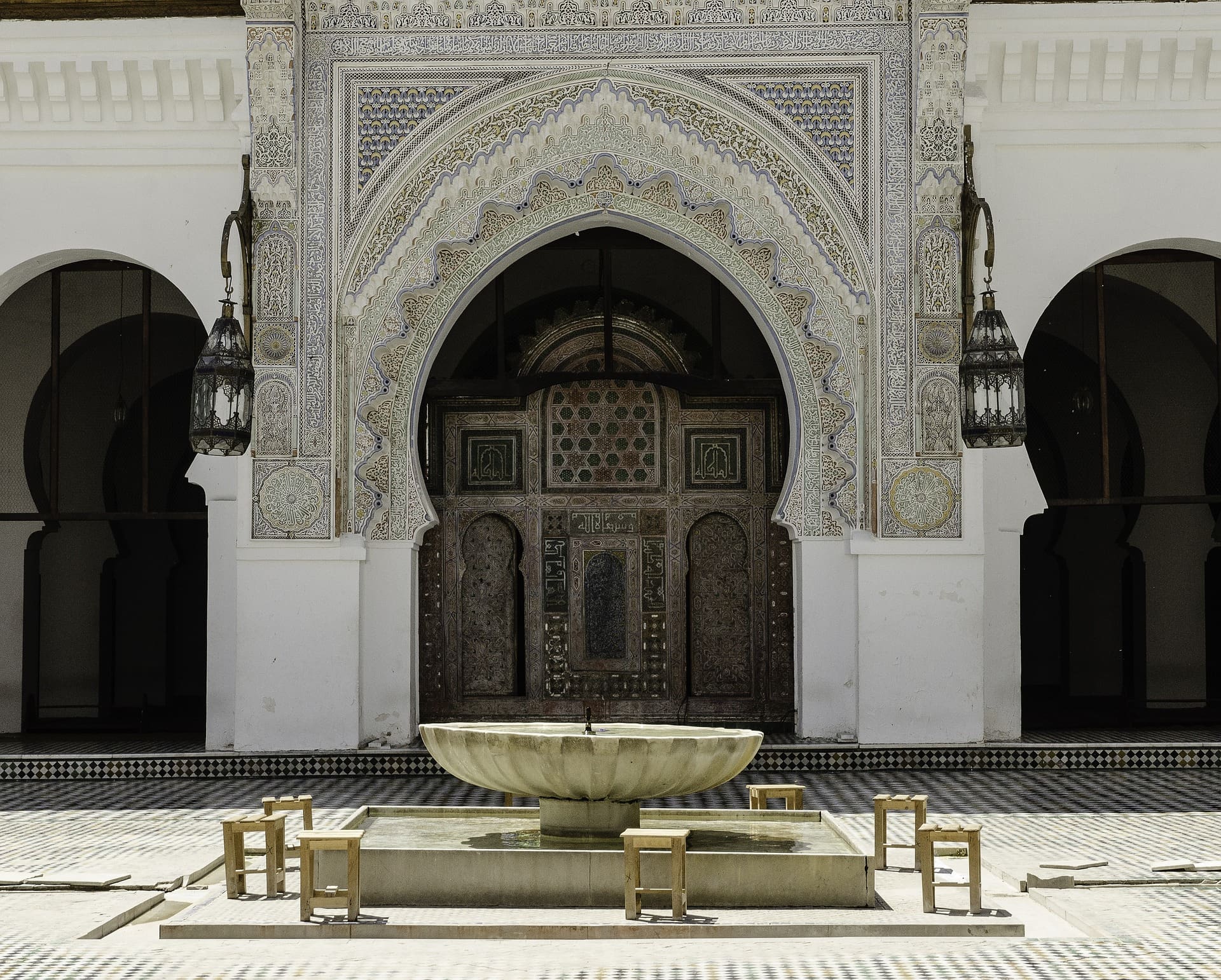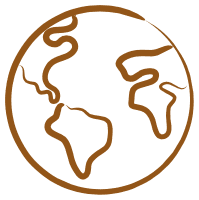Morocco
colorful, aromatic, bustling, enchanting, culturally rich
About Morocco
Culture and Religion
Where to go
How to get there
Visa Requirements
Travelling Budget
About Morocco
Morocco, located in North Africa, is a mesmerizing and diverse country that offers an unforgettable experience to travelers. With its rich history, vibrant culture, stunning landscapes, and warm hospitality, Morocco truly has something for everyone.
One of the first things that comes to mind when thinking about Morocco is its magnificent cities, such as Marrakech, Fez, and Casablanca. These cities are steeped in history, with bustling medinas (old towns) full of colorful markets, intricate architecture, and ancient palaces. Exploring the labyrinthine streets of the medinas is like stepping back in time.
Morocco is also home to breathtaking natural wonders. From the beautiful Atlas Mountains, where you can go hiking or skiing, to the Sahara Desert with its stunning sand dunes, there is no shortage of adventure.
In addition to its natural beauty, Morocco is famous for its cuisine. The flavorful tagines, aromatic couscous, and refreshing mint tea delight the taste buds. Food lovers will enjoy exploring the local markets and trying traditional Moroccan dishes.
The Moroccan people are known for their warm hospitality and welcoming nature. It’s common for locals to invite strangers into their homes for tea and conversation, offering a glimpse into Moroccan family life.
Lastly, Morocco has a fascinating blend of cultures. Influenced by Arab, Berber, and European traditions, this diversity is reflected in everything from the architecture to the music and clothing.
In conclusion, Morocco is a country that offers a unique and unforgettable experience. From its vibrant cities to its stunning landscapes, rich culture, and warm people, Morocco will leave you with memories that will last a lifetime.
Culture and Religion
Morocco is a country known for its rich and diverse culture and religious practices. The culture of Morocco is a blend of Arab, Berber, and European influences, creating a unique and fascinating society.
The Berber people, who are the indigenous inhabitants of Morocco, have a strong influence on the country’s culture. Their traditional music, dance, and art can still be seen and celebrated today. The Amazigh language, which is spoken by the Berber people, holds a significant place in Moroccan identity.
Morocco is also deeply rooted in Islamic traditions. Islam is the predominant religion in the country, with the majority of Moroccans being Sunni Muslims. Mosques are abundant throughout Morocco, and the call to prayer can be heard echoing through the streets five times a day.
The religious practices of Islam can be seen in the daily lives of Moroccans, from observing Ramadan and performing ablution before prayers to participating in religious festivals such as Eid al-Fitr and Eid al-Adha. These festivals bring communities together to celebrate and express their devotion.
Traditional Moroccan clothing is another reflection of the country’s culture and religious practices. Men often wear djellabas, a hooded robe, while women wear caftans or hijabs. These traditional garments can differ in style and color depending on the region and occasion.
Morocco’s culture is also evident in its vibrant arts and crafts scene. Traditional Moroccan crafts include pottery, carpet weaving, leatherwork, and intricate wood carving. These crafts not only serve as a source of income for many Moroccans but also represent the country’s cultural heritage.
Overall, the culture and religion of Morocco are deeply intertwined, with Islamic traditions influencing various aspects of Moroccan society. This unique blend of traditions, languages, and artistic expressions creates a captivating and diverse cultural landscape in the country.
Where to go

Marrakech
Known as the “Red City,” Marrakech is a vibrant and bustling destination that offers a delightful mix of history, culture, and bustling souks. Explore the iconic Djemaa el-Fna square, visit the stunning Bahia Palace, and get lost in the winding alleys of the medina.

Sahara Desert
A visit to Morocco would be incomplete without experiencing the enchanting Sahara Desert. Take a camel trek across the golden sand dunes of Erg Chebbi and spend a night under the starlit sky in a traditional desert camp. The serenity and beauty of the desert landscape are truly unforgettable.

Fes
Fes is one of Morocco’s oldest imperial cities and is renowned for its ancient medina, a UNESCO World Heritage site. Explore the maze-like streets filled with traditional markets, visit historic mosques and madrasas, and immerse yourself in the rich cultural heritage of Fes.

Atlas Mountains
The majestic Atlas Mountains offer breathtaking landscapes and incredible outdoor adventures. Go hiking or trekking through the stunning valleys, visit the remote Berber villages, and enjoy the spectacular views of snow-capped peaks. The Toubkal National Park is a popular destination for outdoor enthusiasts.
Note: These are just a few highlights of Morocco, a country that has so much more to offer in terms of history, culture, and natural beauty. Whether you’re exploring ancient cities, immersing yourself in vibrant markets, or marveling at natural wonders, Morocco is sure to leave a lasting impression.
How to get there
Getting to Morocco is relatively easy due to its well-connected transportation system and its popularity as a tourist destination. Here are several ways to reach Morocco:
By Air: Mohammed V International Airport in Casablanca and Menara Airport in Marrakech are the major international airports in Morocco. Many airlines operate flights to these airports from various cities worldwide. There are also international airports in other cities like Fes, Tangier, and Rabat, offering direct flights from several European countries.
By Sea: If you prefer a leisurely journey, you can choose to arrive in Morocco by ferry. Ferries connect Morocco with Spain, specifically from ports like Algeciras, Tarifa, and Barcelona to ports such as Tangier, Ceuta, and Melilla. Ferry services also operate between Morocco and France, Italy, and other countries in the Mediterranean.
By Land: Morocco can be accessed overland from neighboring countries. There are several border crossings with Algeria, although it is advised to check the current status of border operations. Crossing the land border from Spain into Morocco is possible via the Spanish exclaves of Ceuta and Melilla or through the Strait of Gibraltar.
Once in Morocco, there is an extensive transportation network of buses, trains, and taxis to travel within the country. Domestic flights are also available for long-distance travel between major cities. It’s important to plan your transportation accordingly and research the best options for your specific itinerary.
Remember to check visa requirements and any travel advisories from your home country before planning your trip to Morocco.
Visa Requirements
Visa requirements for Morocco vary depending on your nationality and the purpose and duration of your visit. Here is some general information about visa requirements for Morocco:
Visa Exemptions: Citizens of several countries, including the United States, Canada, the European Union member states, the United Kingdom, Australia, and New Zealand, can enter Morocco visa-free for tourism purposes for a period of up to 90 days. This means you do not need a visa in advance and can simply present your passport at the border for entry.
Visa on Arrival: Some nationalities are eligible for a visa on arrival at Moroccan airports and seaports. This allows you to obtain a visa upon arrival in Morocco, typically for a stay of up to 90 days. However, it is advisable to check if this option applies to your nationality before traveling.
Visa in Advance: If you are not eligible for visa-free entry or a visa on arrival, you will need to apply for a visa in advance through the Moroccan embassy or consulate in your home country. The application process and requirements may vary, so it’s important to contact the embassy or consulate to get the most up-to-date information.
Extension of Stay: If you are already in Morocco and wish to extend your stay beyond the allowed duration, you can apply for an extension at the Moroccan immigration authorities before your current visa expires. It’s recommended to initiate this process well in advance to avoid any complications.
It’s important to note that visa requirements can change, so it is always advisable to check the latest information from the Moroccan embassy or consulate in your country before traveling.


Travelling Budget
The budget for traveling to Morocco can vary depending on several factors, including your travel style, accommodation choices, dining preferences, activities, and the duration of your trip. However, here is a rough breakdown of potential expenses to help you plan your budget:
Accommodation: Morocco offers a wide range of accommodation options, including budget hostels, mid-range hotels, and luxury resorts. On average, you can expect to spend around 30-60 USD per night for a mid-range hotel or guesthouse. If you opt for budget accommodations like hostels or guesthouses, prices can start from as low as 10-15 USD per night.
Food: Moroccan cuisine is diverse and delicious, with options to suit different budgets. You can find budget-friendly street food and local restaurants where a meal can cost around 5-10 USD. For mid-range dining experiences or restaurants in tourist areas, expect to spend around 10-20 USD per meal. Fine dining in upscale establishments can cost upwards of 30 USD per person.
Transportation: Morocco has an efficient and affordable transportation system. Local buses and trains connect major cities and towns, with ticket prices ranging from as low as 5-10 USD for shorter journeys to around 20-30 USD for longer distances. Shared taxis are another popular mode of transportation and can be a cost-effective option for shorter trips within a city.
Activities: Entrance fees to popular tourist attractions, such as historic sites, museums, and gardens, can range from around 1-10 USD per person. Excursions to destinations like the Sahara Desert or Atlas Mountains vary in price depending on the duration and inclusions, but can cost anywhere from around 50-200 USD per person for multi-day trips.
Miscellaneous: Other expenses to consider include visa fees (if applicable), travel insurance, souvenirs, and tips. It’s always a good idea to set aside some extra money for unforeseen circumstances or additional activities that may interest you.
Overall, as a rough estimate, a budget traveler can plan to spend around 30-50 USD per day, while mid-range travelers may need to budget around 50-100 USD per day. Keep in mind that these figures are approximate and can vary based on your preferences and choices during your trip.
What makes your journey easier
Everything you need to know about what to bring to make your travels easier, more safe and fun
Be Mindfull
Gadgets
Gear
Insurance
Visa



![Morocco 1x [rabat]](https://travelhd.nu/wp-content/uploads/2023/08/Morocco-1x-rabat-scaled.jpg)





















